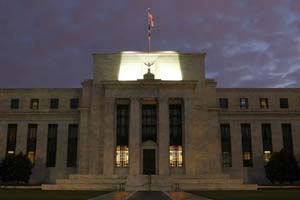India would urge the US Fed to defer its plan to raise interest rates when the G20 finance ministers and central bank governors meet on September 4-5 in Ankara to discuss ways to boost global growth, sources said.
Finance minister Arun Jaitley is likely to seek better monetary policy coordination among the G20 nations to avoid spillover effects which hurt counties like India.
Currencies of India and other emerging countries have been witnessing bouts of volatility in the recent weeks on several factors including Greece debt crisis, devaluation of Chinese yuan and possible rate tightening by the US Fed, besides domestic growth constraints.
India fears tightening of interest rates by US Fed could lead to outflow of capital from the country, further pulling down the rupee.
While depreciation of rupee could offer little help to exports as demand is weak in major global markets, it might inflate imports and hurt companies with unhedged foreign currency loans. The rupee ended at a two-year low of 65.83 a dollar on Friday. It has fallen 4.89% so far in FY16. Analysts say it could weaken further in coming months. Rupee fell to a record low 68.85/$ in August 2013 on US Fed taper tantrum.
Again a similar situation seems to be rising with several Indian policymakers issuing warning signals.
Jaitley is likely to raise the issue at G20 forum to point out that like abnormal policies of the developed countries, their policy nomalisation also have spillover effects.
RBI governor Rajan, who would also attend the meeting, recently said that with the back-to-back quantitative easing stimulus programs by other major central banks, alongside possible tightening by Fed, there could be a series of ‘tantrums’ that the global financial markets might witness. The government and the RBI are closely monitoring the emerging external position including exchange rate of the rupee and on an on-going basis calibrating policies to support robust macroeconomic outcome. “If there is a spillover we can also take action to protect our interest,” sources said.
The central banks of developed counties like the US, Europe and Japan have tried to boost growth by holding interest rates near zero for years, and through massive asset purchases aimed at holding down longer-term borrowing costs.

